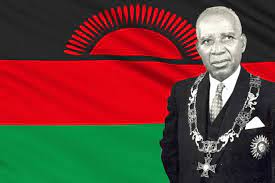Africa story of the week – Updated weekly

Egyptians vote on changes that would extend el-Sissi’s rule
Egyptians cast their ballots Saturday on the first of three days of voting on constitutional amendments that would allow President Abdel-Fattah el-Sissi to stay in power until 2030 and broaden the military’s role.
Critics have blasted the proposed changes as another major step toward an authoritarian government perhaps even more severe than that of former President Hosni Mubarak, whose nearly three decades of autocratic rule was ended by a popular uprising in 2011.
The nationwide referendum came amid an unprecedented crackdown on dissent in recent years. El-Sissi’s government has arrested thousands of people, most of them Islamists but also prominent secular activists, and rolled back freedoms won eight years ago.
Polls closed at 9 p.m. local time. Voting will stretch over a period of three days to allow maximum turnout, which the government is hoping to lend the referendum legitimacy.
Mahmoud el-Sherif, spokesman of the National Elections Authority, said more than 61 million people are eligible to vote. Results were expected within a week, el-Sherif said in a news conference.
Outside a polling center near the Giza Pyramids, around two dozen people, mostly elderly women, lined up waiting to cast their votes. Heavy police and army security was reported at polling stations throughout the country.
Haja Khadija, a 63-year-old housewife, said she came for the “security and stability” of the country. “We love el-Sissi. He did lots of things. He raised our pensions.”
Omar Knawy, who writes novels, voted “No” in the referendum. He said he opposes most of the changes, especially those that would enable el-Sissi to stay in power beyond his current second four-year term. He also opposes articles that declare the military the “guardian and protector” of the Egyptian state, democracy and the constitution.




